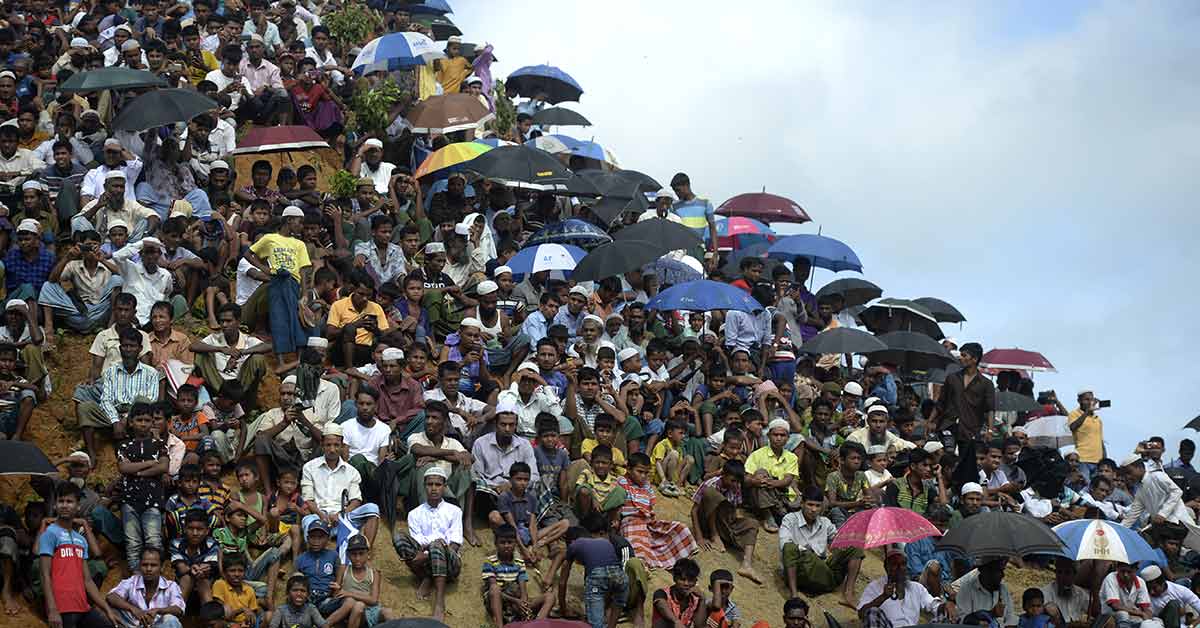Rohingya in Myanmar's conflict-wracked Rakhine state expressed fears Sunday of a coronavirus outbreak reaching their overcrowded camps, after a spate of infections sent the state capital into lockdown.
Nearly 130,000 Rohingya Muslims live in what Amnesty International describes as "apartheid" conditions in camps around Sittwe.
The city has recorded 48 cases in the past week, making up more than 10 percent of the about 400 cases so far registered in Myanmar.
"We are extremely worried about the virus because we are living in limbo and it won't be easy to control," said Rohingya Kyaw Kyaw.
Authorities visited the Thae Chaung camp this week to talk about social distancing - an impossibility as 10 families typically squeeze into a single house - and gave out hand sanitiser and face masks.
"But if the lockdown is for a long time, we will... need help," Kyaw Kyaw told reporters, adding that everyone in the camps had locked themselves indoors.
Sittwe's streets were empty Sunday, with masked residents encountering barricaded roads as they tried to run errands.
Street vendors hawked plastic face shields and surgical masks.
An overnight curfew order has been in place since Friday, while all public transport - including domestic flights - into the capital was suspended.
Rakhine state has long been a flashpoint for ethnic and religious conflict.
The embattled Rohingya Muslim minority are widely regarded as foreign "Bengalis" despite having lived in Myanmar for generations. They lack citizenship rights and their freedom of movement is restricted across the country.
A local Rakhine parliamentarian this week blamed the Rohingya for the virus spread in a Facebook post that was later taken down.
Some 750,000 Rohingya fled to neighbouring Bangladesh following a military crackdown in 2017 - operations that Myanmar is currently facing genocide charges for at the United Nation's top court.
Further north in the state, the military is also battling the Arakan Army, a rebel group seeking more autonomy for the state's ethnic Rakhine Buddhists, and violent clashes have displaced thousands of civilians from their homes.
In Mrauk-U - where three cases were found this week - Rakhine residents feared a halt to food donations to the displacement camps, said camp leader Hla Maung Oo.
"We have nowhere to run if the virus becomes widespread because we also can't go back to our villages," he said. - AFP
